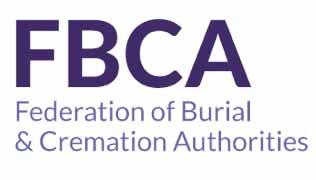
4 minute read
Sands – Communication while wearing PPE
Local authorities are advised to ensure funerals follow this guidance and the Regulations, to minimise the risk of infection.
Personal care of deceased people
Advertisement
Mourners are advised not to take part in rituals or practices that bring them into close contact with the deceased. Where there are aspects of faith which include close contact with the deceased, that contact should be restricted to those who are wearing Personal Protective Equipment (PPE) under the supervision of someone who is trained in the appropriate use of PPE. Detailed guidance on care of the deceased should be followed, regardless of the setting in which personal care of the deceased is provided.
Given the very significant risk for clinically vulnerable and clinically extremely vulnerable people who come into contact with COVID-19, it is strongly advised that they have no contact with the body of the deceased, regardless of whether they are wearing PPE. This includes washing, preparing or dressing the body.
Experiencing grief or bereavement
Whenever the loss of a friend or loved one happens, it can be an extremely difficult and challenging time. This may be even more difficult for those experiencing bereavement and grief during the COVID-19 pandemic. Bereaved people may struggle not just with the bereavement, but with the impact of social distancing measures and the fact that they may not be able to say goodbye in the way that they would have wanted. This may be particularly hard for those living alone, and it may be harder to connect with usual support networks.
Those who are bereaved are likely to feel waves of intense emotions as they come to terms with loss. These can include sadness, guilt, shock and anger. All are common and there is no right or wrong way to feel. Grief affects everyone in different ways, but the important thing is to grieve and to have the right support to do this.
Learn more about grief and support available through the NHS, Cruse Bereavement Care which offers advice and support on dealing with bereavement and grief during the COVID-19 pandemic and ataloss.org which provides signposting and services across the UK. If you are supporting a bereaved child or young person the Childhood Bereavement Network has information and links to national and local organisations.
The Health Protection Regulations
This document is guidance. The law is contained in the Health Protection (Coronavirus, Restrictions) (No. 2) (England) Regulations 2020 (referred to as ‘the Regulations’ in this document). For the position of what is lawful, you should refer specifically to the Regulations.
Communication while wearing PPE
Compassionate communication can positively influence how parents and families experience their care even when the worst happens. Good communication builds trust between a health care professional and an individual, enabling parents and families to feel safe and confident in the care they are experiencing.
Warm facial expressions and a clear gentle voice are both qualities of compassionate communication, so PPE and particularly facemasks are a barrier to building a trusting relationship with parents and families. Parents and professionals have told us about the difficulties caused. Good communication can’t take away the pain parents and families feel but it can reduce the impact of trauma, both in the short and long term.
However, there are several things that health care professionals can do to maintain compassionate communication even when wearing PPE
“Once admitted to hospital all staff were in full PPE, care was second to none, but it did make difficult conversations hard as you could not
see or speak to staff properly” Bereaved parent
Carry a photograph of yourself without a mask and share when appropriate, or display staff photographs in a public area.
Introduce yourself clearly,
have your name badge visible and gesture to it as you make your introductions.
Acknowledge the difficulties,
explain why you can’t shake hands or make physical contact and that the situation is difficult.
Use eye contact and smile,
even if they can’t see your mouth, people will be able to see a smile in your eyes.
“The use of PPE i.e. fluid resistant masks made communication more difficult and there are challenges with not being able to offer the normal comforting of parents
that we would” Professional
Consider your tone of voice,
ensure you can be heard, but be gentle, kind and honest.
Support understanding,
by using hand gestures.
Take your time,
don’t talk too fast, check back for understanding, use written prompts if necessary.
Say things in a different way,
if you have not been understood.
Think about the physical environment,
face parents, try to stand still when speaking, try not to stand with light or a window behind you.









